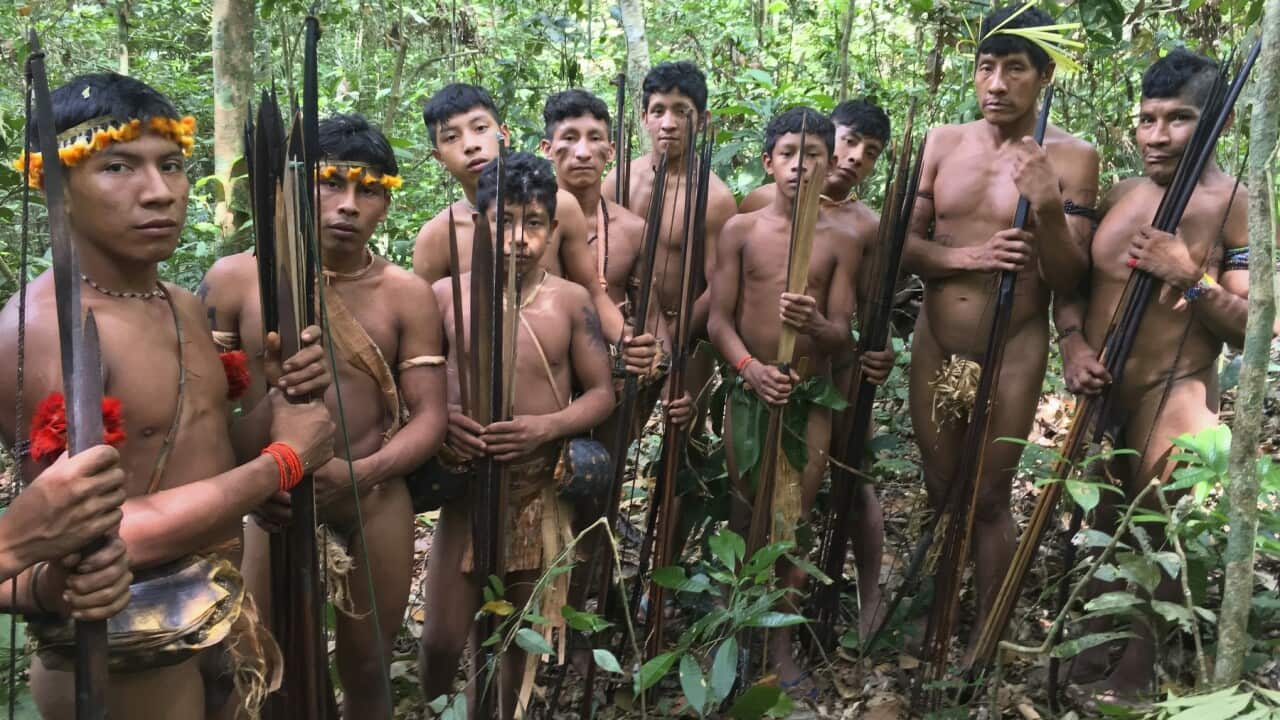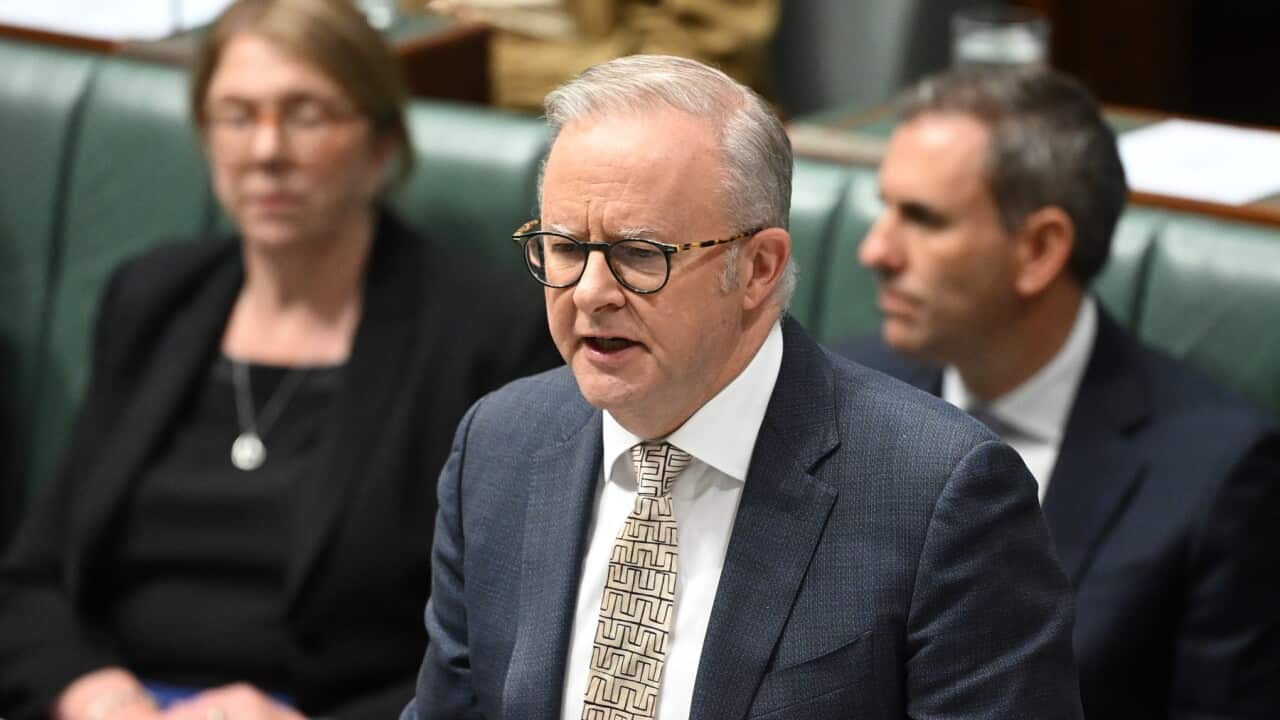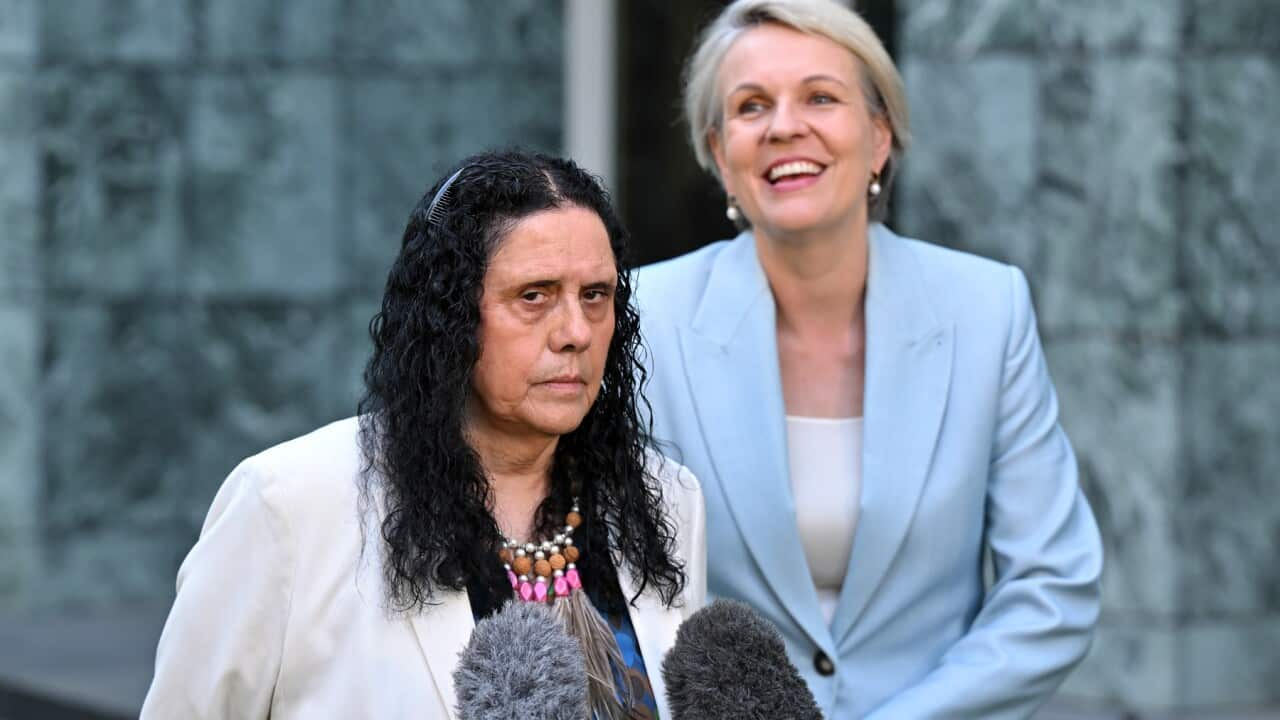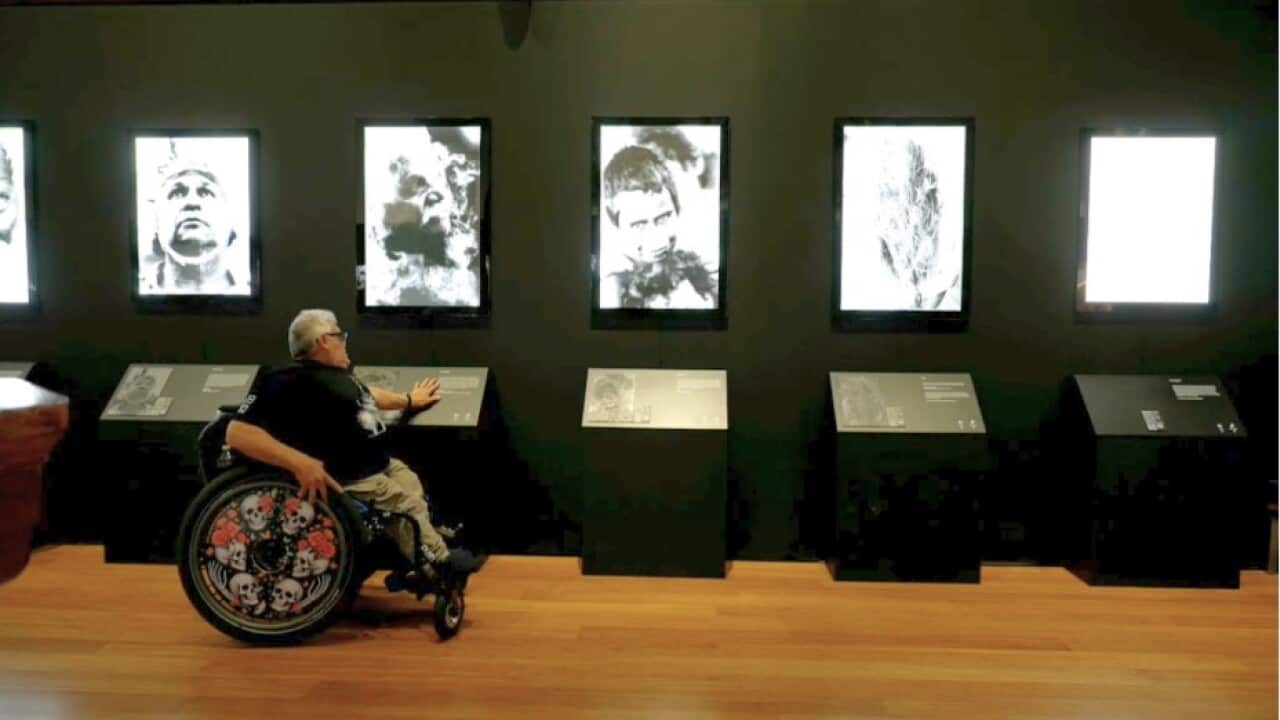Listen to Australian and world news, and follow trending topics with SBS News Podcasts.
TRANSCRIPT
Deep in the Amazon jungles of Brazil lies a territory known as the Javari Valley.
It spans over 85,000 square kilometres, with 99 percent of its original forest cover still intact.
The Valley is also home to what the Brazilian National Indigenous People Foundation or FUNAI says is the greatest concentration of isolated and uncontacted Indigenous groups in the Amazon - and the world - who live by hunting, fishing and small-scale cultivation, maintaining languages and traditions that predate modern nation-states.
For decades Brazil encouraged contact with these isolated Indigenous communities - but it reversed course in 1987, adopting a no-contact policy that year which allowed interaction only if initiated by the Indigenous people themselves.
Otherwise, they must be left alone.
The NGO Survival International estimates that in total, there's 196 such uncontacted communities across the globe, spread across ten countries in South America, Asia, and the Pacific, some like the North Sentinelese, covered by similar prohibitions.
The trouble is these isolated peoples are being squeezed by roads, miners and drug traffickers, a crisis unfolding far from public view or effective state protection.
Survival International's executive director Caroline Pearce says they face extinction within the next ten years unless urgent action is taken.
"It feels to us increasingly urgent to really address this - expose and address this - as a global crisis. In all the ten countries where uncontacted peoples live they are under attack right now."
Survival International have just published a report that outlines the threats to these uncontacted communities.
And the report has some troubling figures: estimating that nearly 65 percent of uncontacted peoples face threats from logging, about 40 percent from mining and around 20 percent from agribusiness.
Caroline Pearce says the growing exploitation of nickel to meet surging demand for electric vehicle batteries is of concern in Indonesia.
"There are uncontacted Hongana Manyawa people on Halmahera Island in Indonesia who are warning off those who are bulldozing their land for nickel mining. We have Araya families in Paraguay who are right now evading those who are clearing their land for cattle ranching."
For the Kakataibo community of Peru's Ucayali region, it's illegal logging and cocoa cultivation.
Kakataibo community member Herlin Odicio does not live in isolation and instead campaigns on his people's behalf.
"We Indigenous organisations are working to defend their land rights because they don't have people who can come out and fight for themselves. They are being invisibilised by the government. The Peruvian government is trying to eliminate the laws and bring in anti-Indigenous laws that would really be terrible for uncontacted peoples. This would mean the extermination of our uncontacted relatives."
Herlin's point is that it's not just a matter of land being lost; there are also lives at stake.
Fiona Watson is Survival International's campaigns director and says that can sometimes take a gruesome form.
"Genocides that we have catalogued and that are still happening for all we know are what I would call silent genocides. And that is there are no TV crews in there or journalists reporting because uncontacted Indigenous peoples live in very remote forested areas like the Amazon or the rainforest of Indonesia and West Papua, and India."
Disease is the other risk threatening uncontacted peoples.
In 2020, it was COVID as it spread across the globe, with Brazil recording more than 60 deaths at the hands of the coronavirus among the Kayapo indigenous people and other tribes.
But director general of the Forest Stewardship Council, Subhra Bhattacharjee, says even common colds pose a threat.
"A simple cold that you and I recover from in a week, that you can even go to work with - if they contract that, they could would be killed. They could die of that cold. They don't have the immunity."
Survival International argues these threats often receive little priority from governments, which critics say see uncontacted peoples as politically marginal because they don't vote and their territories are often coveted for logging, mining and oil extraction.
Indigenous rights - particularly land rights - are protected under international law - yet although national legislation exists, the NGO argues that implementation is often weak.
Fiona Watson says sometimes it's also the authorities themselves that are behind the projects which pose a threat.
"There are still problems with infrastructure projects. There's a railway line being planned in Brazil, in the Amazon, to transport agricultural produce from the rich agricultural centre-west, up to the northeast, therefore out to the Atlantic to export produce that potentially affect three uncontacted Indigenous peoples."
For actor Richard Gere, a supporter of the organisation and a long-time activist, the lack of strong protections points to something more fundamental, where biases and stereotypes shape public debate.
He says at the one extreme uncontacted peoples can be romanticised as 'lost tribes', while at the other extreme, they are viewed as barriers to development.
"You know, I grew up in a country that was built on the misery of our Indigenous people in America. And I have enormous shame about that... It was the wrong thing to do and it was cruel and it was unnecessary."
Herlin Odicio says the preservation of uncontacted peoples will require both stronger laws and a shift in how the world views them.
He says they are not relics of the past, but citizens of the planet whose survival affects everyone’s future.
"They have land rights - rights over their ancestral territories - but there are illegal activities happening on those territories, organised crime. And this contributes to the lack of security and to the vulnerability that they face. We are not asking the government for a favour. This is a right that we have had for many decades."













